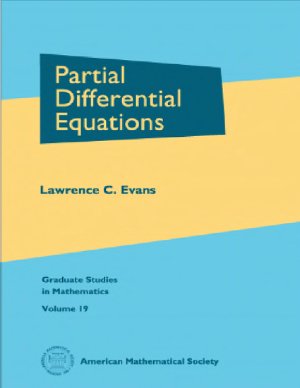American Mathematical Society, 1998. - 662 pages.
This text gives a comprehensive survey of mode techniques in the theoretical study of partial differential equations (PDEs) with particular emphasis on nonlinear equations. The exposition is divided into three parts: 1) representation formulas for solutions, 2) theory for linear partial differential equations, and 3) theory for nonlinear partial differential equations.
Included are complete treatments of the method of characteristics; energy methods within Sobolev spaces; regularity for second-order elliptic, parabolic, and hyperbolic equations; maximum principles; the multidimensional calculus of variations; viscosity solutions of Hamilton-Jacobi equations; shock waves and entropy criteria for conservation laws; and much more.
The author summarizes the relevant mathematics required to understand current research in PDEs, especially nonlinear PDEs. While he has reworked and simplified much of the classical theory (particularly the method of characteristics), he emphasizes the mode interplay between functional analytic insights and calculus-type estimates within the context of Sobolev spaces. Treatment of all topics is complete and self-contained. The book's wide scope and clear exposition make it a suitable text for a graduate course in PDEs.
This text gives a comprehensive survey of mode techniques in the theoretical study of partial differential equations (PDEs) with particular emphasis on nonlinear equations. The exposition is divided into three parts: 1) representation formulas for solutions, 2) theory for linear partial differential equations, and 3) theory for nonlinear partial differential equations.
Included are complete treatments of the method of characteristics; energy methods within Sobolev spaces; regularity for second-order elliptic, parabolic, and hyperbolic equations; maximum principles; the multidimensional calculus of variations; viscosity solutions of Hamilton-Jacobi equations; shock waves and entropy criteria for conservation laws; and much more.
The author summarizes the relevant mathematics required to understand current research in PDEs, especially nonlinear PDEs. While he has reworked and simplified much of the classical theory (particularly the method of characteristics), he emphasizes the mode interplay between functional analytic insights and calculus-type estimates within the context of Sobolev spaces. Treatment of all topics is complete and self-contained. The book's wide scope and clear exposition make it a suitable text for a graduate course in PDEs.

